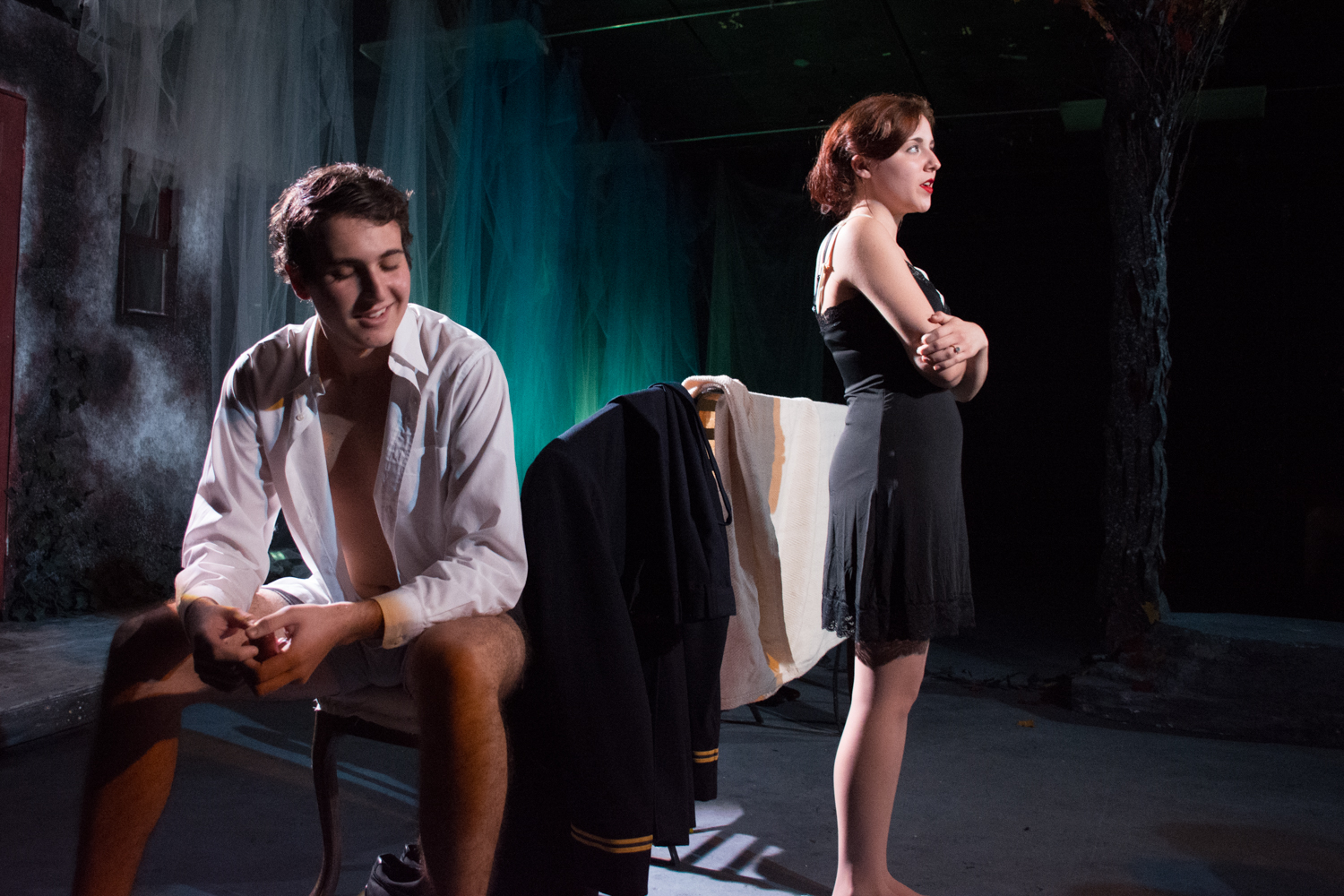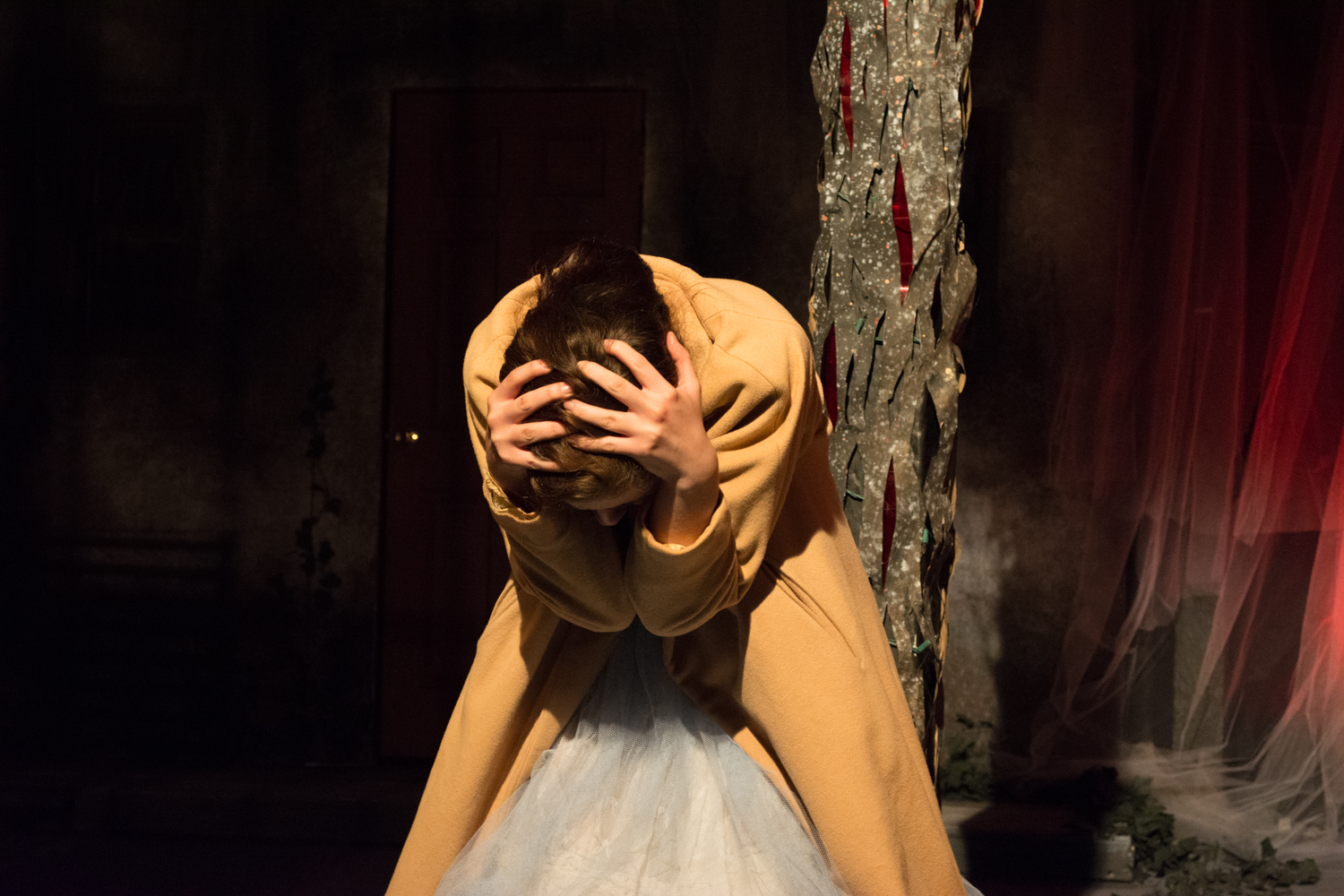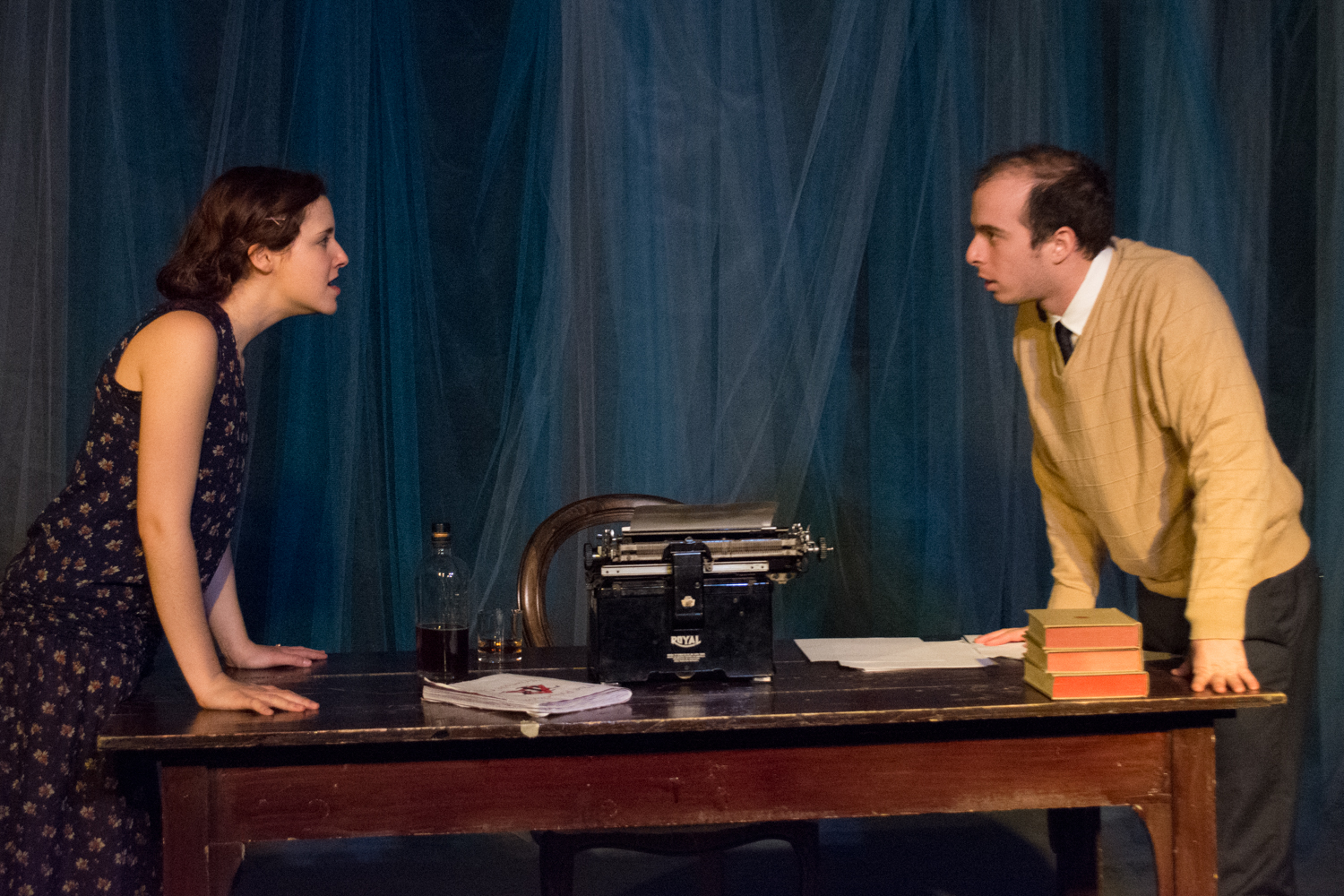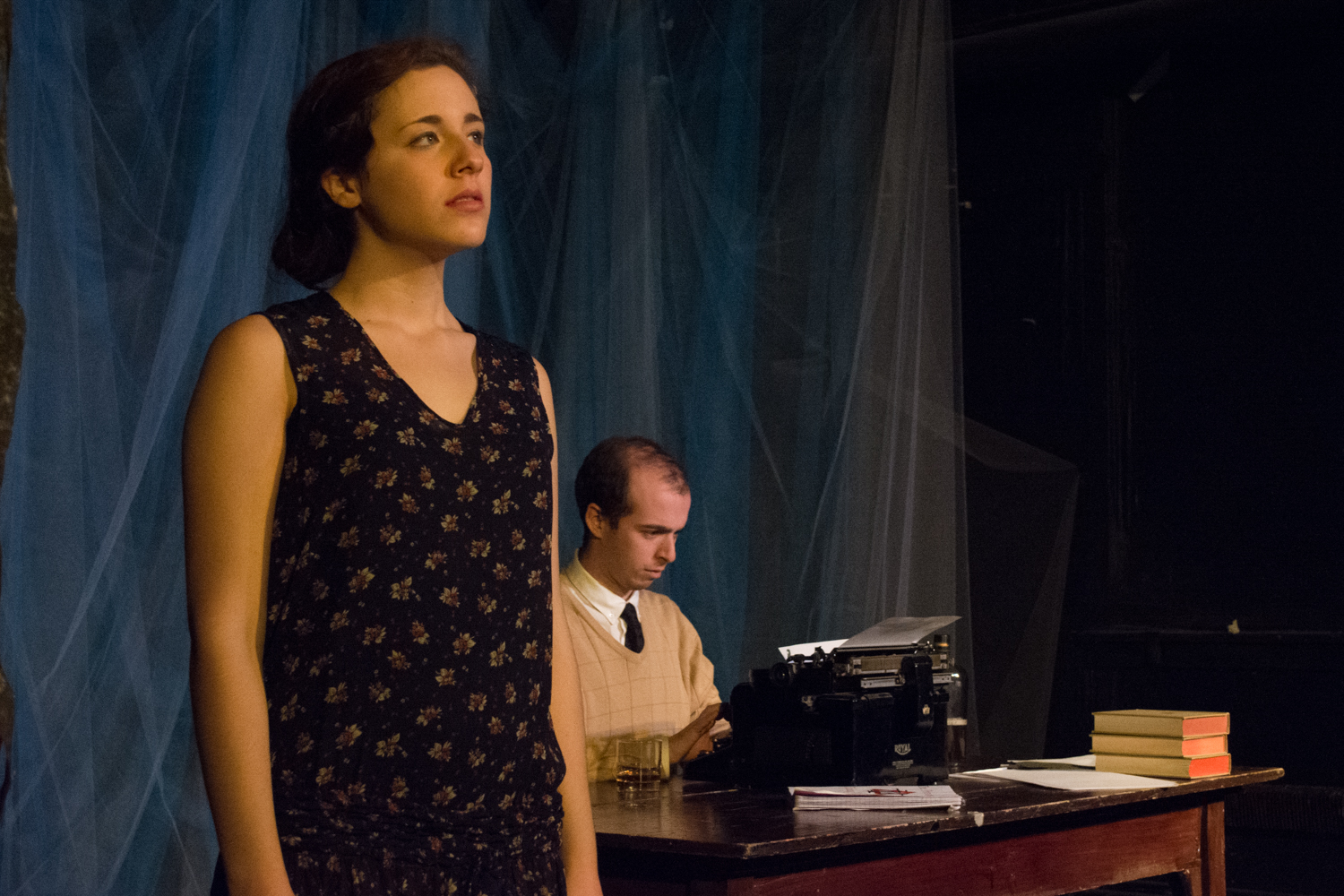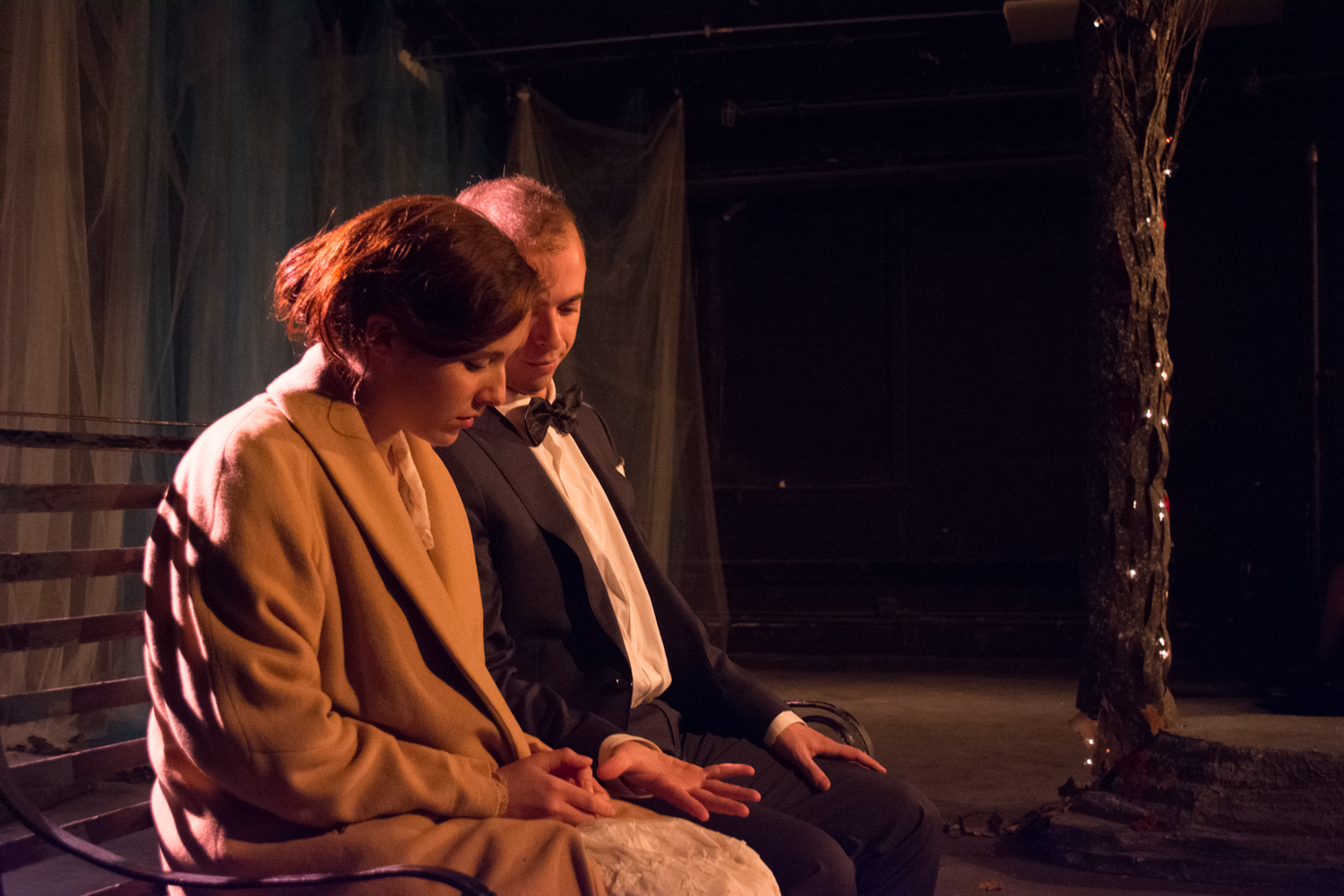Clothes for a Summer Hotel is a play in disguise.
On the surface the plays narrates the dramatic marriage of F. Scott Fitzgerald, author of The Great Gatsby, and his wife, Zelda. But it also holds a deeper message about the stigma around mental health.
When the WAVE Productions executive board chose Communication junior Solveig Herzum for her first ever directing role last spring, she was already on mood stabilizer medication for a suspected mental illness. Herzum set out to find a play that told a story about women and mental health – and in Clothes she found it.
At first a dashing celebrity couple of the Roaring ‘20s, the Fitzgerald’s relationship developed serious issues, including Scott’s alcoholism and Zelda’s mental health. Clothes focuses on Zelda’s potential genius stifled by her husband and her own mind.
During a summer of preparing to make Clothes come to life, Herzum was officially diagnosed with Bipolar II Disorder. She spent much of the summer in an intensive outpatient program to work on her mental health, and began to feel a personal connection to Zelda’s story.
“At the time I related to her feelings of being trapped, of her being unable to explain how she feels, how she perceives the world,” Herzum said. “It really resonated with me on that level of Zelda’s character being this woman whose life is not what she wants it to be.”
When Clothes, the 34th work of celebrated playwright Tennessee Williams, debuted on Broadway in 1980, critics and audiences alike collectively rejected it. The show survived for only 14 nights. But Herzum and Producer Maddie Rostami believed that small differences, such as historically debated points in the Fitzgerald’s lives and theater techniques Williams uses that are more popular today, would make it a successful production at Northwestern. They also believed they could present Clothes in their own unique way
“These plays are sometimes some of the better ones, because people who cast them off often don’t spend the time to read them and look at them in certain ways,” Rostami said. “When you sit down and get the chance to reinterpret them in your own way, you find those failed works are often some of the good gems of the theater.”
Herzum and Rostami reinterpreted Clothes into a message about mental health. They wanted to help start a conversation about how Northwestern discusses the topic.
“[Zelda’s] story is a really important one to tell, because it’s still being reflected in today’s world. I know many people on this campus who have gone through similar experiences as I have and don’t talk about it,” Herzum said. “I want this show to be a way to talk about it, because it’s all about breaking the stigma and being able to talk about these things. This isn’t about being crazy, but it is about what does it even mean to be talking about what crazy is.
Mental health was part of the fabric of the show. Rostami insisted on healthy habits from cast and crew, even refusing to let them come to meetings if they were too stressed. The show’s program included a detailed list of resources for mental health care and support. Before the final performance the Clothes team held a public discussion about the stigma of mental health on campus.
A week before Clothes opened, Herzum found herself in a psych ward, hospitalized because of her disorder. The setback forced the team to forfeit some of their extra efforts, but she returned before opening night. In the play, Zelda admits herself to an insane asylum (then diagnosed with schizophrenia, but historians think bipolar disorder is more likely), and Williams jumps back and forth across the timeline, cutting between her and Scott at the asylum, and a chronology of their story.
“I could actually, in some small way, understand what it feels like to literally be locked away, even if it was self-admittance," Herzum said. "I’m not trying to say that I’m Zelda – her life story is a huge tragic thing, and I’m just a student at Northwestern, but it’s been really interesting how as I work on this play my own life has paralleled the themes and deeper meanings of what we discovered.”
Through Clothes, Herzum, Rostami and their whole team attempted more than artistic excellence – they used the stage as a tool for change.
“Rather than it being this cool, flashy, weird show that it might’ve been billed as when it came to be, how can we talk about these issues that are still very relevant to people on our team and on campus as a whole?” Rostami said. “How can we be working to make sure that people get the help that they need to be healthy?”
